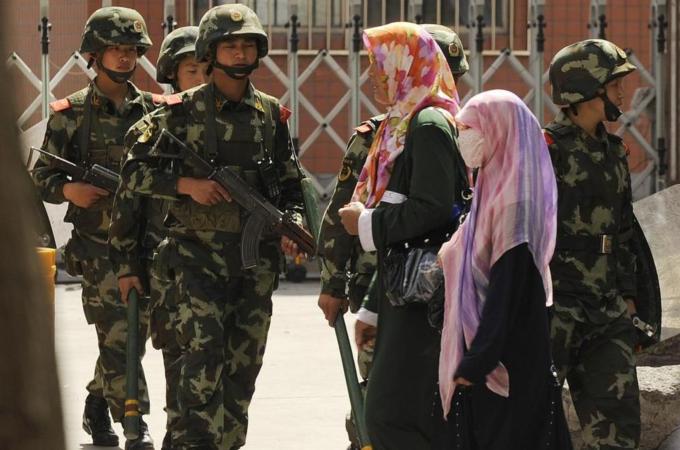Xinjiang government news portal Tianshan Net reported [Chinese] that police shot and killed six “mobsters” who were attempting to detonate an explosive in a business district in Shule County, Kashgar, Xinjiang on January 12. Reuters Sui-Lee Wee sums up Tianshan’s report:
Police in Shule county, south of the old Silk Road city of Kashgar, had acted on a tip-off about “a suspicious person carrying an explosive device”, the Xinjiang government said on its official news website.
An axe-wielding individual tried to attack police officers and set off an explosive device, prompting the officers to shoot him, the government said.
The report added that police trying to dispose of an explosive device were attacked by five “thugs” who sought to detonate it, but did not make clear if this was a separate incident. Police killed the men, according to the government.
The report said there were no other casualties, but gave no details of the assailants. [Source]
In late November, state media reported that 15 were killed in a terrorist attack in Shache County, Kashgar, 11 of whom were the alleged assailants. These most recent episodes comes as authorities continue a crackdown in response to an upswing in violence in Xinjiang and greater China over the past year. Coverage from the New York Times’ Andrew Jacobs describes the disparity between Chinese authorities’ and human rights advocates’ believed cause of violence in the region:
The Chinese authorities often blame Islamic extremists for the bloodshed, saying that some have been trained in Pakistan and Afghanistan. But human rights advocates call such claims exaggerated as part of an effort to obscure what they describe as a slow-boil, homegrown insurgency inflamed by policies that repress religious practices and seek to dilute Uighur culture.
“Charges of so-called terrorism attacks are just China’s excuses for using excessive force,” Dilxat Raxit, a spokesman based in Germany for the World Uyghur Congress, said in an email. “It’s China’s provocative policies that are instigating the unrest.” [Source]
As authorities steadily escalate their crackdown, violence has continued in the troubled region. In addition to increased security, authorities’ anti-terror efforts have also included restrictions on religious dress and custom. Last month, the municipal legislature in Xinjiang’s capital city of Urumqi, approved a ban on face-covering Islamic veils, a regulation that Xinjiang regional authorities have now given the go ahead. Quartz’ Lily Kuo reports, also citing Tianshan as the original source [Chinese]:
It’s not clear when the ban will go into effect. State media said only that it will be implemented after being modified to meet comments proposed in a meeting over the weekend.
[…] The state-run news agency Xinhua justified the burqa ban by pointing out that burqas are also banned in France (perhaps not the best example to use, given the recent extremist attack on French magazine Charlie Hebdo). The Xinhua report in English said, “Burqas are not traditional dress for Uighur women… The regulation is seen as an effort to curb growing extremism that forced Uighur women to abandon their colorful traditional dress and wear black burqas.” [Source]
While Quartz and Xinhua use only the word burqa in covering the ban, China Daily says that it is to include “full-face veils and full-body coverings.”







